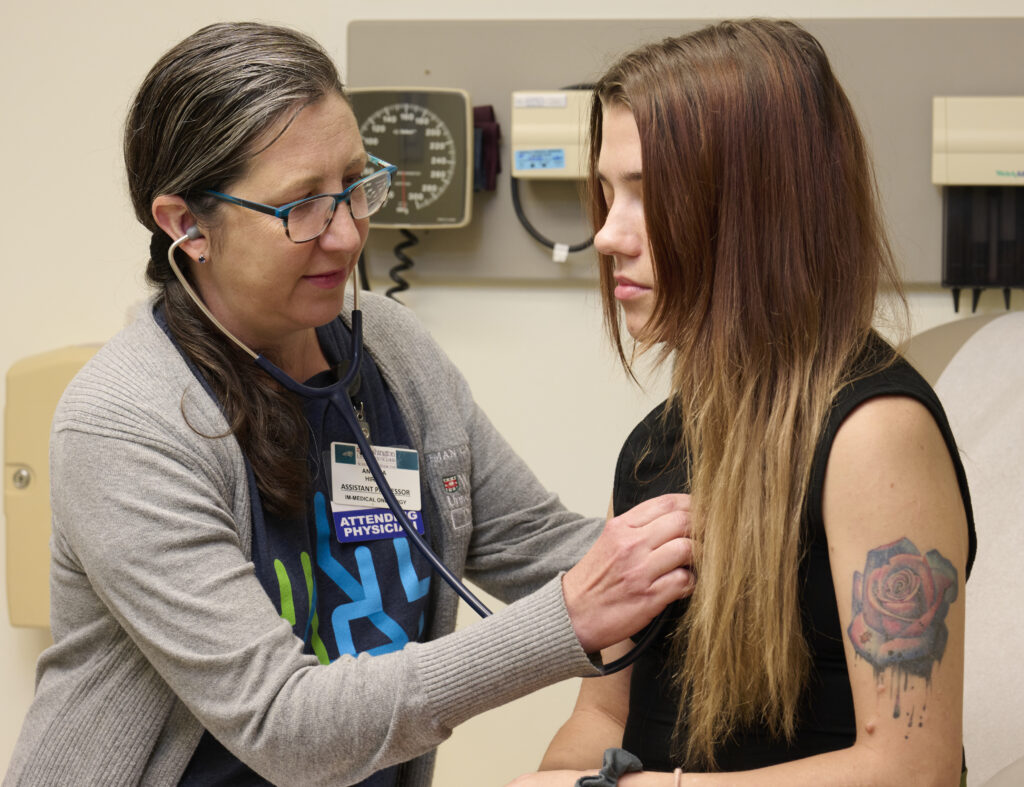One of the largest and most comprehensive centers in the world specializing in the care of people with Neurofibromatosis (NF) and related disorders — the Washington University NF Center — is celebrating 30 years of NF.

Neurofibromatosis (NF) is a set of four rare genetic medical conditions with which children and adults are prone to neurodevelopmental disabilities (learning, attention, motor delays and autism) and cancers (brain and nerve tumors) across the lifespan. The most common of these disorders is NF type 1 (NF1), affecting over 100,000 individuals in the U.S.
Beginning in 1994, David H. Gutmann, MD, PhD, the Donald O. Schnuck Family Professor in Neurology, established the NF Clinical Program at St. Louis Children’s Hospital. This multi-disciplinary program was specifically designed to provide patients and their families integrated medical care and the most advanced treatments available. Since its inception, it has grown to include ten dedicated pediatric and adult practitioners who are experts in the care of people with NF.
To effectively prepare children for the transition to adult care, the NF Center has developed an Adolescent and Young Adult (AYA) program. Led by NF Center coordinator and occupational therapist, Madeline Scherr, pediatric and adult providers meet bi-monthly to develop a transition to adulthood plan for each person, beginning at 14 years of age. “By preparing teenagers (and their parents) for adulthood at an early age,” Scherr said, “teenagers are able to become more confident in their abilities to manage their own medical care.”
Gutmann established the Washington University NF Center in 2004 as a result of the complexity of NF, the lack of effective therapies and the inability to predict what medical problems any child would develop. The mission of the NF Center is to facilitate collaborations between clinical providers and laboratory researchers to accelerate the pace of scientific discovery and its application to the care of individuals living with NF.
As one of the world’s largest and most comprehensive research collectives, the NF Center aims to change the way it manages care for children and adults with NF by:
- Determining why NF-related medical problems arise
- Developing strategies to predict which specific NF-related medical problems are likely to develop in any given individual
- Discovering innovative approaches to treating NF-related medical problems

Studies from investigators at the Washington University NF Center have resulted in a new understanding of why problems arise and what risk factors might underlie the development of specific medical conditions in NF. They have also identified novel therapies — now in clinical trials — for people with NF.

Unique to the Washington University NF Center, healthcare extends beyond the hospital walls by offering novel therapy and life skills programming in collaboration with St. Louis community collaborators, such as the St. Louis Science Center, Ranken Jordan Pediatric Bridge Hospital, Missouri Botanical Garden, Schnucks Markets and the St. Louis Zoo. They have developed a suite of programs, including Music Heals (music therapy program for toddlers), Club NF (play-based therapy program for school-age children) and Totally TEEN (life skills program for teenagers), as well as annual Camp NF and NF Family Day events.
The Washington University NF Center is, also, committed to training the next generation of NF specialists. This is accomplished at the undergraduate and postgraduate levels through the NF Scholars Program and at the medical practitioner level through the International NF Virtual Tumor Board, which serves over thirty institutions from over twenty different countries worldwide.
Harper Grace Durham is just one success story that reflects the dedication of researchers and clinicians in the Washington University NF Center. She was diagnosed with NF1 after a brain biopsy before she even celebrated her first birthday. Her family wrote in a note featured in the Washington University NF Center 2023 annual report that the NF Center was there “for questions, referral letters, assistance with school and therapy scripts, research on genetic testing and fun events to help our little girl feel like a regular kiddo. We know they have our daughter’s best interest in mind, and we appreciate all they do for her.”
Looking to the future, the Washington University NF Center aims to personalize medical management. Using a combination of advanced artificial intelligence methods, innovative laboratory investigations, novel clinical trials and unique therapeutic programming, they aspire to provide proactive precision medical care and promote healthy development across the lifespan for people living with NF.
